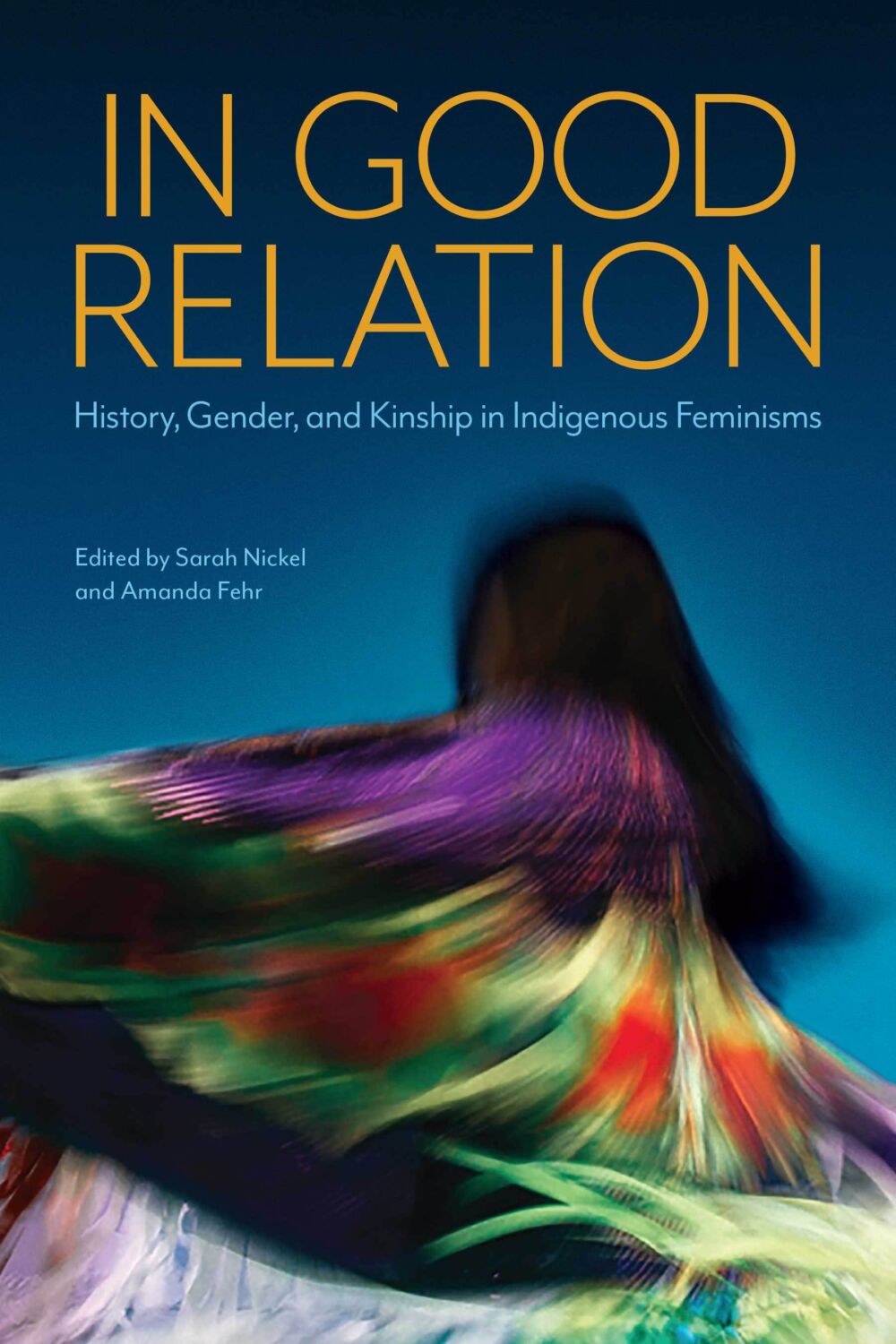- October 28, 2020
- 11:30am – 12:30pm CDT
- Online Event
“In Good Relation: History, Gender and Kinship in Indigenous Feminisms”: A Collaborative Panel with Editor Sarah Nickel (U of Saskatchewan) and Contributor Kai Minosh Pyle.
Event co-sponsored by the University of Manitoba Press.

Come join our weekly colloquium panel discussing and visiting with some of the best speakers, leaders, and researchers in Indigenous Studies on Turtle Island! In this panel Dr. Nickel and contributor Kai Minosh Pyle as they discuss the new anthology In Good Relation: History, Gender and Kinship in Indigenous Feminisms which explores traditional Indigenous scholarly approaches to motherhood, life history, and legal status as well as takes forays into considering the connections between Indigenous feminisms, Indigenous philosophies, the environment, kinship, violence, and Indigenous Queer Studies.
Bios:
Sarah Nickel is a Tk’emlupsemc Assistant Professor of Indigenous Studies at the University of Saskatchewan. Her first book, Assembling Unity: Pan-Indigenous Politics, Gender, and the Union of BC Indian Chiefs, was published in 2019. Her next project explores Indigenous women’s political work in the twentieth-century west.
Kai Minosh Pyle (Mekadebinesikwe) is a Two-Spirit writer, Indigenous language learner and advocate, and researcher. Born and raised in Green Bay, Wisconsin, they have ancestral ties to the Red River Métis, Sault Ste. Marie Ojibwe, and the northeast Wisconsin Polish-American community.
Fall 2020 Colloquium (online only)
Zoom Meeting ID: 964 6105 1167
Passcode: 699158
Watch on ZOOM or online on our Facebook page: www.facebook.com/UofMNativeStudiesDept
For more information contact UMNATV Colloquium coordinator Niigaan Sinclair at [email protected].
About the Book
Over the past thirty years, a strong canon of Indigenous feminist literature has addressed how Indigenous women are uniquely and dually affected by colonialism and patriarchy. Indigenous women have long recognized that their intersectional realities were not represented in mainstream feminism, which was principally white, middle-class, and often ignored realities of colonialism. As Indigenous feminist ideals grew, Indigenous women became increasingly multi-vocal, with multiple and oppositional understandings of what constituted Indigenous feminism and whether or not it was a useful concept. Emerging from these dialogues are conversations from a new generation of scholars, activists, artists, and storytellers who accept the usefulness of Indigenous feminism and seek to broaden the concept.
In Good Relation captures this transition and makes sense of Indigenous feminist voices that are not necessarily represented in existing scholarship. There is a need to further Indigenize our understandings of feminism and to take the scholarship beyond a focus on motherhood, life history, or legal status (in Canada) to consider the connections between Indigenous feminisms, Indigenous philosophies, the environment, kinship, violence, and Indigenous Queer Studies. Organized around the notion of “generations,” this collection brings into conversation new voices of Indigenous feminist theory, knowledge, and experience. Taking a broad and critical interpretation of Indigenous feminism, it depicts how an emerging generation of artists, activists, and scholars are envisioning and invigorating the strength and power of Indigenous women.

